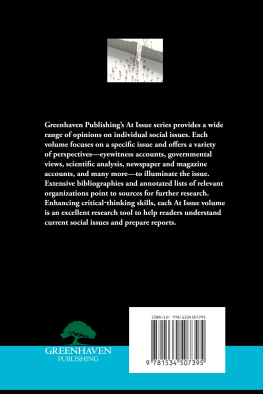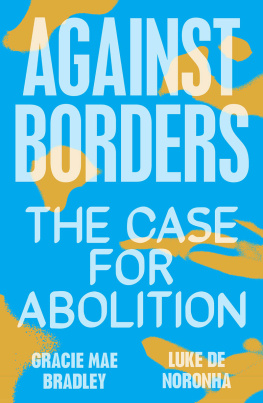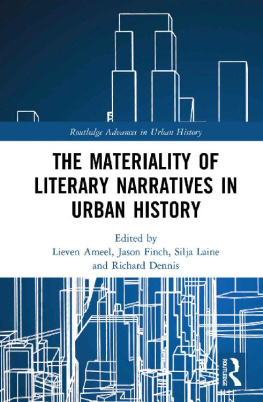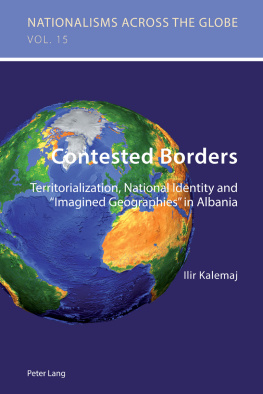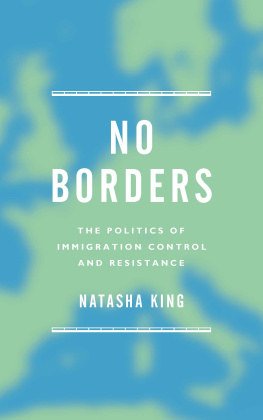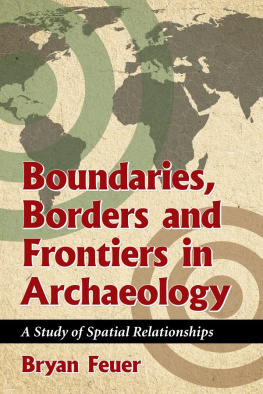The political materialities of borders
RETHINKING BORDERS
SERIES EDITORS: SARAH GREEN AND HASTINGS DONNAN
Rethinking Borders focuses on what gives borders their qualities across time and space, as well as how such borders are experienced, built, managed, imagined and changed. This involves detailed and often richly ethnographic studies of all aspects of borders: finance and money, bureaucracy, trade, law, new technologies, materiality, infrastructure, gender and sexuality, even the philosophy of what counts as being borderly, as well as the more familiar topics of migration, nationalism, politics, conflicts and security.
Previously published
Migrating borders and moving times: Temporality and the crossing of
borders in Europe
Edited by Hastings Donnan, Madeleine Hurd and Carolin Leutloff-Grandits
The political materialities of borders
New theoretical directions
OLGA DEMETRIOU AND ROZITA DIMOVA
Manchester University Press
Copyright Manchester University Press 2019
While copyright in the volume as a whole is vested in Manchester University Press, copyright in individual chapters belongs to their respective authors, and no chapter may be reproduced wholly or in part without the express permission in writing of both author and publisher.
Published by Manchester University Press
Altrincham Street, Manchester M1 7JA
www.manchesteruniversitypress.co.uk
British Library Cataloguing-in-Publication Data
A catalogue record for this book is available from the British Library
ISBN 978 1 5261 2385 5 hardback
First published 2019
The publisher has no responsibility for the persistence or accuracy of URLs for any external or third-party internet websites referred to in this book, and does not guarantee that any content on such websites is, or will remain, accurate or appropriate.
Typeset by
Servis Filmsetting Ltd, Stockport, Cheshire
Contents
1 Introduction: theorizing material and non-material mediations on the border
Olga Demetriou and Rozita Dimova
2 Materiality, imbrication, and the longue dure of Greco-Turkish borders
Olga Demetriou
3 Memory as border work: the 2008 ItalyLibya Friendship Treaty and the reassembling of Fortress Europe
Chiara De Cesari
4 Ontologies of borders: the difference of Deleuze and Derrida
Tuija Pulkkinen
5 Lines, traces, and tidemarks: further reflections on forms of border
Sarah Green
6 Materializing the border-as-line in Sarajevo
Stef Jansen
7 Borders as ghosts
Eleni Myrivili
8 Materialities of displacement: borders in contemporary Macedonia
Rozita Dimova
Chiara De Cesari is an anthropologist and Assistant Professor in European studies and cultural studies at the University of Amsterdam. She completed her PhD in socio-cultural anthropology at Stanford University in 2009 and has been a postdoctoral researcher at Utrecht University and at the Institute for Cultural Inquiry in Berlin as well as a lecturer and coordinator of the MA in heritage and museum studies in the Department of Archaeology and Anthropology at Cambridge University. She is co-editor of the book Transnational Memories: Circulation, Articulation, Scales (de Gruyter, 2014, with Ann Rigney) and is currently finishing a book entitled Heritage and the Struggle for Palestine (forthcoming). De Cesari is the Amsterdam team leader in the Horizon 2020 Critical Heritages (CoHERE) project, funded by the European Union, which explores whether and how people feel European, and is also part of the CHEurope (Critical Heritage Studies and the Future of Europe) project, funded under the Horizon 2020 Marie Skodowska-Curie Innovative Training Networks programme. Her most recent project explores how Europe imagines itself as a cultural space, particularly through its cultural and, more specifically, heritage policies and museums and, in turn, the image of Europe that these policies institutionalize.
Olga Demetriou is Associate Professor of Post Conflict Reconstruction and State-Building at the Durham Global Security Institute, School of Government and International Affairs at Durham University, UK. She is the author of Capricious Borders: Minority, Population, and Counter-Conduct between Greece and Turkey (Berghahn, 2013, 2017) and Refugeehood and the Post-Conflict Subject: Reconsidering Minor Losses (2018). Her work examines questions of political subjectivity, especially relating to minorities, migration, refugeehood, and gender. She works at the intersection of anthropology, conflict studies, sociology, and international relations and she has published in various journals in these fields. She has carried out fieldwork in border regions in Greece and Cyprus for the last two decades.
Rozita Dimova is Associate Professor of Slavonic and East European Studies in the Department of Languages and Cultures at Ghent University. She obtained her MPhil degree in anthropology from Cambridge University (1996) and her PhD in anthropology from Stanford University (2004), with a dissertation analysing ethno-nationalism, materiality, and aesthetics in Macedonia that won the Robert Texture Award for outstanding anthropological creativity. She is a recipient of prestigious international grants and awards, among which are a five-year doctoral fellowship from the Center for International Studies at Stanford University, a doctoral field-work grant from the National Science Foundation (USA), and the Geballe Dissertation Fellowship. After completing her doctorate at Stanford in 2004, Dimova was awarded a postdoctoral fellowship at the Max Planck Institute for Social Anthropology in Halle, Germany (200306), where she worked on a project on refugees from Former Yugoslavia living in Berlin. The subsequent years in Berlin opened the doors for area studies as she joined the Institute for East European Studies at Free University, Berlin, with a grant from the Volkswagen Foundation (200609), and the Department of Slavonic and South-East European Studies at Humboldt University in Berlin (201015) with a five-year grant from the German Research Council (DFG).
Sarah Green is Professor of Social and Cultural Anthropology at the University of Helsinki. She specializes in the anthropology of location, which in her research involves border relations, the EU, the Balkans, and the Aegean region. She is the author of many publications, including Notes from the Balkans: Locating Marginality and Ambiguity on the GreekAlbanian Border (Princeton University Press, 2015). She is currently the principal investigator of a European Research Council Advanced Grant project called Crosslocations in the Mediterranean: Rethinking the Sociocultural Dynamics of Relative Positioning, which grew out of the work that she discusses in this volume. For that project, she is developing new research on border regimes that regulate the movement of animals, and is also further developing the lines, tidemarks, and traces idea into a wider interest in what could be called geometrical anthropology.
Stef Jansen



